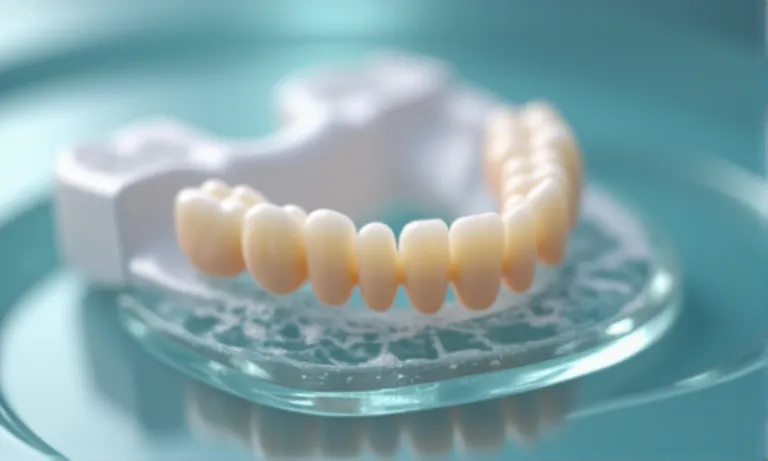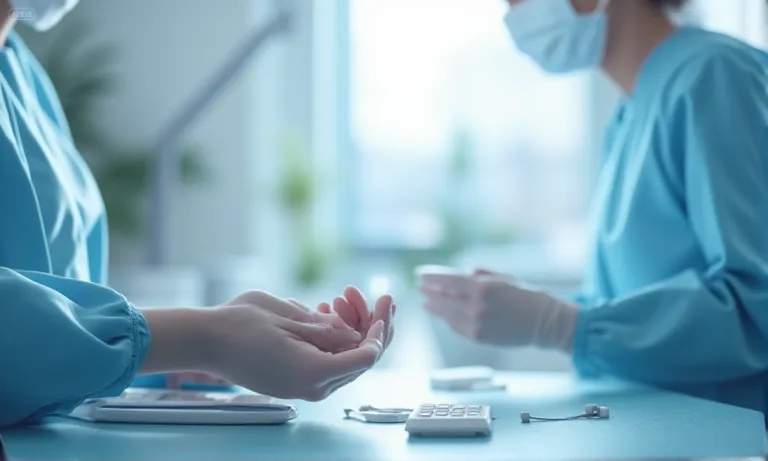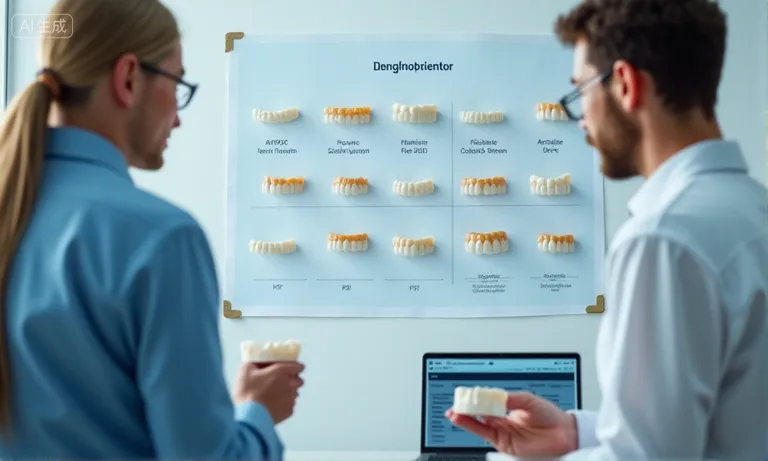Outsourcing dental labs accelerates implant practice growth by reducing costs, shortening turnaround times, and unlocking access to specialized expertise. It improves scalability and profitability while ensuring consistent quality—freeing clinics to focus more on patient care and strategic development.
Key growth barriers can be overcome through outsourcing:
- High operating costs → lower labor, training, and equipment expenses.
- Limited in-house capacity →faster restorations with streamlined digital workflows in implant dentistry.
- Service expansion needs → advanced implant solutions delivered without added overhead.
- Quality concerns → fewer remakes and higher patient satisfaction with reputable partners.
Taken together, these advantages turn outsourcing into a growth engine rather than a cost measure. With flexibility, broader treatment options, and stronger competitiveness, implant practices can confidently scale to meet rising patient demand.
Why Does Outsourcing Drive Growth in Your Implant Practice?
Outsourcing accelerates growth in implant practices because it frees clinical teams to focus on patient care, scales capacity without the burden of in-house operations, and redirects cost savings into business expansion. By removing non-core tasks from your team’s daily load, practices gain both time and capital to reinvest into higher-value activities.

Dental-lab-outsourcing-growth
How does outsourcing free your team to focus more on patient care and core growth activities?
When chairside staff are not occupied with case fabrication, they can devote more energy to patient consultations, treatment planning, and long-term care. Outsourcing reduces the daily administrative burden of managing technicians and equipment, allowing practices to allocate more hours to revenue-driving activities like new patient acquisition or advanced treatment discussions. This focus improves patient satisfaction and strengthens loyalty, both of which are critical for sustainable growth.
Why is outsourcing more scalable than maintaining an in-house lab?
Scaling an in-house lab requires continuous investment in technicians, equipment, and training. By contrast, outsourcing taps into an established network of overseas dental labs that already operate at volume. A single clinic can suddenly access capacity that would normally require years of capital build-up. This scalability means that when implant demand rises, practices do not face bottlenecks in lab production but instead have the flexibility to handle growth seamlessly.
How does outsourcing enable practices to reinvest savings into business expansion?
The funds saved from not running a full in-house lab—salaries, consumables, maintenance, and equipment—can be redirected into areas with a faster return on investment. Many practices choose to reinvest into new operatories, intraoral scanners for digital impressions, or marketing campaigns to attract more implant patients. For example, one mid-sized U.S. clinic we supported redirected outsourcing savings into an intraoral scanner purchase, which reduced appointment times and further fueled their patient growth. The cycle of outsourcing savings leading to reinvestment creates a compounding effect on business expansion.
Outsourcing is not just a way to cut overhead—it is a lever that gives practices the bandwidth, scalability, and financial freedom to accelerate growth. When handled with the right overseas partner, outsourcing transforms from a tactical cost choice into a strategic growth engine.
How Can Outsourcing Dental Labs Reduce Costs and Boost Profitability?
Outsourcing reduces costs by eliminating the fixed expenses of in-house labs—such as labor, training, and equipment—while leveraging competitive overseas pricing to improve profit margins and ROI. The result is not just lower overhead, but a more efficient financial structure that frees capital for practice growth.

Dental-lab-outsourcing-cost-savings
What labor and training expenses are saved with outsourcing?
Employing in-house technicians requires salaries, benefits, and continual training on evolving implant technologies. Outsourcing removes these recurring obligations. For small and mid-sized practices, this can represent tens of thousands of dollars annually. By redirecting those funds, practices can allocate resources to marketing campaigns, staff development, or expanding operatories—investments that deliver more visible growth.
How does partnering with overseas labs cut costly equipment and facility overhead?
In-house labs demand significant capital investment in milling machines, furnaces, scanners, and space renovations. These assets depreciate quickly and require ongoing maintenance. By contrast, outsourcing shifts the burden of equipment ownership to established overseas dental labs.
| Cost Category | In-House Lab (Annualized) | Outsourcing Model |
|---|---|---|
| Technician Salaries | $60,000–$120,000 | $0 |
| Equipment Purchase & Maintenance | $150,000+ | $0 |
| Training & Continuing Education | $5,000+ | $0 |
| Facility & Utilities | $20,000+ | Minimal |
This cost shift allows practices to avoid high upfront and ongoing investments, stabilizing cash flow and reducing financial risk.
Why does competitive outsourcing pricing directly improve your profit margins and ROI?
Outsourcing partners often operate in cost-efficient regions, where competitive pricing enables practices to maintain or even expand margins while keeping fees affordable for patients. One U.K. group practice that we supported reduced its average crown unit cost by nearly 40% after moving from in-house production to outsourcing. Those savings translated into higher EBITDA margins and a faster ROI on marketing investments. Instead of tying capital into lab overhead, the practice gained flexibility to scale services and maintain healthier profitability.
By removing labor, equipment, and training costs, outsourcing reshapes the economics of implant dentistry. The financial freedom it creates allows practices to reinvest strategically, making profitability a lever for long-term growth.
How Does Outsourcing Improve Turnaround Times and Operational Efficiency?
Outsourcing improves turnaround because external labs operate at scale, leverage advanced digital workflows, and flex capacity during seasonal spikes—achieving faster, more reliable delivery than most in-house setups. This efficiency allows implant practices to treat more patients without production delays.

Dental-lab-outsourcing-turnaround-efficiency
Why can outsourcing labs deliver implant restorations faster than in-house setups?
Outsourcing labs specialize in high-volume production and maintain extended shifts that most clinics cannot sustain internally. Their dedicated logistics and streamlined production lines minimize idle time between cases. While an in-house setup may face bottlenecks when one technician is overloaded, outsourcing ensures parallel workflows across multiple technicians, enabling consistent delivery within shorter timeframes.
How do integrated digital workflows minimize production delays and errors?
Digital workflows significantly reduce the manual handoffs that slow traditional processes.
- CAD/CAM design libraries accelerate crown and abutment modeling.
- STL/PLY file compatibility allows instant data transfer between clinic scanners and lab systems.
- Automated milling and 3D printing reduce human error and maintain consistent precision.
By integrating these digital steps, outsourcing labs cut remake rates and avoid delays caused by miscommunication or file incompatibility. Practices benefit from faster approvals, more predictable schedules, and reduced downtime.
How does outsourcing provide flexibility to manage seasonal peaks in demand?
Seasonal spikes—such as end-of-year treatment surges or insurance-driven deadlines—can overwhelm in-house capacity. Outsourcing addresses this through scalable resource allocation:
- Labs can instantly assign more technicians to high-priority cases.
- Expanded production lines absorb sudden case volume without compromising timelines.
- Logistics partners coordinate shipping schedules to ensure cases still arrive on time.
This elasticity allows clinics to handle demand peaks without turning away patients or extending wait times.
By delivering faster restorations, reducing workflow errors, and scaling for demand, outsourcing strengthens operational reliability. Clinics gain not only quicker case completion but also smoother patient scheduling and higher chairside productivity.
What New Services and Expertise Can Outsourcing Expand for Your Practice?
Outsourcing expands a clinic’s service portfolio by connecting practices with specialized lab expertise, enabling the introduction of premium implant solutions, and broadening treatment options without adding operational overhead. This creates opportunities to attract more complex cases and strengthen the value proposition to patients.

Dental-lab-outsourcing-service-expansion
How can specialized labs support complex and high-value implant cases?
Advanced cases such as full-arch restorations, immediate load implants, or zirconia hybrids demand expertise that many practices cannot develop in-house. By outsourcing, clinics gain access to technicians who regularly handle these advanced workflows. For example, a mid-sized European DSO we worked with outsourced its first series of All-on-4 cases to an overseas dental lab, allowing the group to confidently expand into higher-value implant offerings without the risk of trial-and-error internally. This collaborative expertise reduces clinical stress while boosting revenue from complex treatments.
Why does outsourcing create opportunities to introduce new premium services?
Premium services often require advanced lab capabilities. Outsourcing makes them accessible without major investments:
- Esthetic upgrades such as multilayered zirconia crowns or veneers.
- Implant-supported overdentures and screw-retained solutions.
- Guided surgery support with digital planning and surgical stents.
By incorporating these services, practices can differentiate themselves in competitive markets. Offering premium treatment options not only improves patient satisfaction but also justifies higher fee schedules that increase profitability.
How does outsourcing expand your service offerings without overhead?
Adding services internally would normally require new hires, equipment, and training. Outsourcing bypasses these barriers by relying on external expertise and infrastructure. A single-chair clinic can suddenly present treatment options comparable to a multi-location group practice. This levels the playing field, giving smaller practices access to advanced restorative solutions without incurring overhead costs. For patients, the clinic appears more comprehensive and resourceful, while for the practice, expansion comes with minimal financial risk.
By making complex solutions, premium services, and expanded offerings readily available, outsourcing turns service variety into a competitive advantage. Practices not only broaden their treatment menu but also enhance market positioning and patient loyalty.
How Does Outsourcing Elevate Quality and Patient Satisfaction?
Outsourcing elevates quality by connecting practices with certified labs that specialize in precision implant restorations, reducing costly remakes, and ultimately improving patient confidence and satisfaction. A strong lab partnership ensures consistent outcomes that reinforce trust in both the clinic and the treatment.

Dental-lab-outsourcing-quality-patient-satisfaction
Why do certified outsourcing labs deliver consistently high-quality restorations?
Certified labs work under international standards such as ISO 13485 and implement rigorous quality systems. Their technicians handle high case volumes, which sharpens expertise and ensures repeatable accuracy. By collaborating with such partners, clinics benefit from restorations that meet global precision benchmarks—margins fit better, occlusion is accurate, and esthetics are consistent. This level of reliability is difficult for smaller in-house labs to maintain over time.
How can outsourcing partnerships reduce remakes and costly errors?
Errors in implant restorations often arise from manual processes or poor communication between clinical and lab teams. Outsourcing reduces these risks through structured workflows:
- Digital file verification before production.
- Statistical process control to monitor accuracy.
- Multi-stage inspections prior to shipment.
Each layer of control lowers the likelihood of remakes, which can otherwise consume valuable chair time and frustrate patients. Lower remake rates mean practices save on both hidden costs and reputational damage.
How does a partnership with a lab improve overall patient experience?
Patients rarely distinguish between the clinic and its lab partner—what they perceive is the final outcome. Faster, well-fitting restorations shorten chairside adjustments and reduce the number of appointments. For example, a Canadian implant clinic we supported reported a 25% drop in follow-up visits for adjustments after shifting to an outsourcing model. This smoother experience led to higher patient satisfaction scores and more referrals. For the clinic, improved patient loyalty directly translates into sustainable growth.
When quality is consistent and errors are minimized, patients feel more confident in their treatment. Outsourcing therefore becomes not just a supply chain choice, but a key driver of trust and long-term clinic reputation.
What Strategic Advantages Does Outsourcing Offer for Sustainable Growth?
Outsourcing provides implant practices with long-term strategic advantages by strengthening competitive positioning, enabling adaptability to market shifts, and reinforcing profitability through scalable, ROI-driven growth. It transforms outsourcing from a tactical decision into a sustainable business strategy.

Dental-lab-outsourcing-strategic-growth
How does outsourcing give your practice a competitive edge in pricing and services?
By lowering production costs and broadening service offerings, outsourcing allows clinics to deliver premium-quality restorations at competitive prices. This dual advantage—cost efficiency plus service variety—differentiates practices in crowded implant markets. Patients perceive greater value, while competitors struggle to match the combination of affordability and advanced treatment options. Over time, this competitive edge translates into stronger patient acquisition and retention.
Why is adaptability to changing market demand vital, and how does outsourcing enable it?
Dental markets fluctuate due to insurance cycles, demographic changes, and evolving treatment trends. Outsourcing enables clinics to adjust without structural disruption:
- Scale case volume up or down without staffing changes.
- Introduce new implant solutions as demand emerges.
- Absorb regulatory or market-driven shifts faster than in-house labs.
This adaptability ensures practices remain agile and capable of meeting patient needs, regardless of external pressures. In dynamic healthcare environments, agility is a defining marker of sustainable growth.
How does outsourcing strengthen long-term ROI, profitability, and scalable growth?
Sustainable profitability depends on reducing fixed costs while investing in growth engines. By shifting lab operations to an overseas dental lab, practices lock in predictable, lower production costs while freeing capital for strategic investments—whether in digital technology, patient experience, or clinic expansion. A U.S. DSO we supported reinvested outsourcing savings into three new operatories, achieving breakeven on the investment within 18 months due to increased patient flow. This illustrates how outsourcing compounds ROI over time, transforming operational savings into long-term profitability.
Strategically managed outsourcing ensures practices are not only leaner today but also better positioned for tomorrow’s opportunities. It is the foundation for sustainable growth, aligning financial health with market adaptability and competitive strength.
Conclusion
Outsourcing dental lab work allows implant practices to achieve sustainable growth by lowering fixed costs, improving turnaround, expanding service capabilities, and ensuring consistent quality. These benefits translate into stronger profitability and more satisfied patients, while giving clinics the agility to adapt to changing market demands. When managed with the right overseas dental lab partner, outsourcing is not simply a cost decision—it becomes a strategic collaboration that compounds long-term ROI. For practices aiming to scale while maintaining high standards of care, outsourcing is a proven path to lasting competitiveness and growth.





